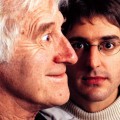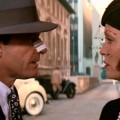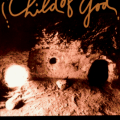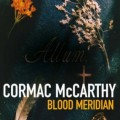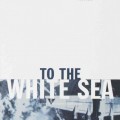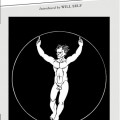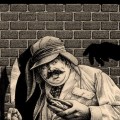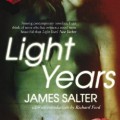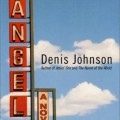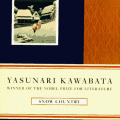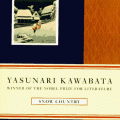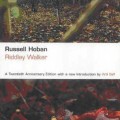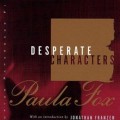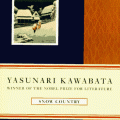10 Unjustly Neglected Novels
Just because it’s unknown doesn’t mean it deserves to be. Here are ten novels that, for whatever reason, didn’t get the recognition they deserved.
It almost goes without saying, but for all the novels that have made the bestseller lists, received nominations for literary prizes, or been adapted into Hollywood films, there have been thousands upon thousands of others that have fallen into obscurity. It’s often down to quality: only a fraction of whatever gets published will ever be good enough. On rare occasions, though, certain masterpieces are neglected for no obvious reason. Here’s a look at ten great modern novels that remain tragically under-appreciated.
‘Child Of God’ and ‘Blood Meridian’ by Cormac McCarthy
McCarthy finally emerged from obscurity following the film adaptations of two of his recent novels, ‘No Country for Old Men’ and ‘The Road’. Unfortunately, despite his new-found Oprah-level fame, his earlier and often better novels still remain underappreciated. ‘Child of God’ and ‘Blood Meridian’, his third and fifth books respectively, are the kind of novels that make you worry about old Cormac. It’s not like he’s usually concerned with daffodils and bunny-rabbits (unless they’re being cut up and used in some sort of macabre death-ritual), but even by his standards they’re pretty gruesome. ‘Child of God’, set in the hill country of East Tennessee, explores the actions of Lester Ballard, a violent necrophiliac, serial-killer and cave-dweller, in a style that manages to be poetic and accessible at the same time. It’s a vivid, gripping portrayal of one haunted nutcase, and it’s crying out to be rediscovered.
‘Blood Meridian’, on the other hand, is half as accessible as ‘Child of God’, yet it’s also almost twice as good. Destined to go down as one of the greatest books of our time, it’s only now beginning to find an audience, years after its publication. Almost biblical in its grandeur and style, the novel follows a character referred to only as ‘the kid’ and his experiences with a group of scalp hunters. Ethically, these guys are pretty much as low as it’s possible to get; and none more so than Judge Holden. Without a doubt one of the most frightening characters ever created, the Judge is a completely hairless, seven-foot tall serial killer, who’s well-versed in everything from technical drawing to chemistry. And ‘Blood Meridian’ is such a powerfully strange novel that he doesn’t even seem out of place.
‘To The White Sea’ by James Dickey
Dickey’s got a couple of claims to fame. He was, for example, America’s version of Poet Laureate from 1966 to 1968. Unfortunately, this in itself doesn’t exactly guarantee household recognition; they’ve offered it to so many people that, chances are, if you can throw together a rhyming couplet and you own an American flag, you might be in with a shot. He also wrote ‘Deliverance’ which, in its film version, overshadows anything else he’s ever done. A terrible shame, because ‘To The White Sea’, his last book, is a great novel. Set in the final months of World War II, Muldrow, an American gunner, parachutes from his burning plane into the heart of Tokyo. It may sound like the beginning of a standard war story, but it’s not. As Muldrow tries to flee to Japan’s rural north, the story turns into an almost-mythic tale of survival. It’s easily one of the oddest and most haunting war novels in recent times.
’1982, Janine’ by Alasdair Gray
Alasdair Gray is so unknown that, a few years ago, I genuinely saw him on ITV News being interviewed as a random Glaswegian pedestrian. As Gray was giving his opinion in the street, no one realised that this was one of Scotland’s leading writers. Instead he just said his bit and then it was someone else’s turn, and that was that. It’s picking up for Gray, though: his first novel, ‘Lanark’, is rightly beginning to receive the praise it deserves. On the other hand, ‘1982, Janine’, which came three years later, has been left behind; and it’s arguably the better book. Taking place over one night, the novel is narrated by Jock McLeish, a divorced, alcoholic alarm systems operator, as he sits alone in a hotel room. It’s safe to say that Jock’s got problems. He tries his best to conjure up deranged pornographic fantasies, but he’s unable to keep his troubling memories from interfering. It ends up getting pretty dark indeed. It’s fascinating, though, and an eerily good rendering of the inner-thoughts of a man who’s hit rock bottom.
It’s difficult to overstate the greatness of this book. Honestly, this really is pretty much as good as it gets for modern fiction
‘A Confederacy Of Dunces’ by John Kennedy Toole
This was published in 1980, but written much earlier. The story goes that Walker Percy (a neglected novelist himself) began receiving phonecalls from a woman who wanted him to read her dead son’s novel. One day she turned up with the hefty, barely readable manuscript in her hand and Percy had no choice. He began reading in the hope that it was poor enough to be turned away after a quick look, but he soon realised that he was dealing with a masterpiece. A couple of years later, it was finally published. Over the years the book’s grown in popularity, but it still doesn’t get the recognition it deserves; and Toole, who killed himself aged 32, remains all but unknown. Yet it’s truly great. Set in New Orleans in the ‘60s, the story centres around Ignatius J. Reilly (an eccentric, deluded and slothful 30-year old who still lives with his mother), and follows him on his quest for employment. It may have a weird sort of sad undercurrent, but it somehow manages to be almost consistently hilarious. I don’t think it’d be an exaggeration to call it one of the funniest novels ever written.
‘Light Years’ by James Salter
It’s difficult to overstate the greatness of this book. Honestly, this really is pretty much as good as it gets for modern fiction, and yet it doesn’t even have its own Wikipedia entry. When people think it’s more useful to have information about the cast of The Only Way is Essex instead of a one-of-a-kind literary masterpiece, you know you’re in trouble. Anyway, Salter’s incredible, and everything he’s ever done has been direly underappreciated. ‘Light Years’, his best novel, centres around an American couple, Nedra and Viri, and the cracks that begin to form in their marriage. But really, it’s about memory, the passing of time, even, to get pretentious for a second, life itself. Its heavily poetic style makes it a bit of a demanding novel, but, like all of Salter’s books, it’s definitely worth the effort.
‘Angels’ by Denis Johnson
With a National Book Award on his mantelpiece, Denis Johnson’s pretty famous now; but this, his first book, rarely gets a look in. And it should, because, as far as I’m concerned it’s better than the rest of his output combined (which is no mean feat). A look into the dark fringe of American life, ‘Angels’ begins with the meeting of two dispossessed wanderers: Jamie, on the run with her two baby girls, and Bill Houston, an ex-con. They embark on a desperate, nightmarish odyssey through the weird and downright frightening underbelly of contemporary America – a world that Johnson has pretty much built a career out of, and with good reason. It’s magnificent; a complete one-off. And it surely one day deserves to be recognised as a landmark of American fiction.
A book written by an author who’s had more success with her children’s books, centring around a New York couple’s response to a cat bite, and out of print for decades
‘Snow Country’ by Yasunari Kawabata
This guy won the Nobel Prize, and yet no one seems to know who he is. I’m sure he’s big over in his home nation of Japan, but in the West it’s another story. We live in a country where Vernon Kay is a household name and yet Kawabata, an absolute master, goes unnoticed. A sure sign of the downfall of society if I ever saw one. Anyway, Kawabata’s masterpiece, ‘Snow Country’, is set in an unnamed Japanese town known mainly for its hot springs. Shimamura, a wealthy, lonely businessman from Tokyo, forms a relationship with one of the rural geishas, but it doesn’t go to plan. It’s not exactly breaking the mould, plot-wise, but that can be overlooked. The novel’s real strength is in the writing: it’s pretty close to perfect, almost like a poem in novel form (but without any of the pretentiousness that brings to mind). It’s simple and profound, and, considering it’s such a thoroughly Japanese book, it seems to translate into English just fine, so why it’s neglected is beyond me.
‘Desperate Characters’ by Paula Fox
A book written by an author who’s had more success with her children’s books, centring around a New York couple’s response to a cat bite, and out of print for decades, ‘Desperate Characters’ may sound like it deserves its status as a neglected work. But there’s been a recent revival in interest for the novel, and rightly so. Set in the ‘60s, this elegant and subtly disconcerting short novel explores the lives of Sophie and Otto Brentwood and their – you guessed it – dying marriage. What sets it apart from so many similarly-plotted stories is its strength of writing and characterisation. Unlike the cardboard cut-outs in the usual boring looks at the disintegration of marriage, Sophie and Otto actually come to life. It’s a quiet, subtle book, so it won’t exactly leave your jaw hanging off, but you’ll be hard pressed to find a modern novel that offers a more penetrating portrayal of a suffocating adult couple than this.
‘Riddley Walker’ by Russell Hoban
Russell Hoban’s a writer who’s tried his hand at genres as diverse as mainstream fiction, fantasy, science fiction, poetry and children’s literature, and yet he’s never quite found popular success. ‘Riddley Walker’, probably his most famous novel, is still barely read. One of the obstacles to its success is obvious: the whole book’s written in an odd and crudely phonetic dialect, i.e. ‘He wasn’t close enough’ becomes ‘He wernt close a nuff’. Apparently, after the five years spent writing it, Hoban discovered that it’d turned him into a poor speller. But surely it was worth it, because ‘Riddley Walker’ is a valuable, brilliant book, and for all its apparent strangeness, it’s really not that difficult once you become immersed in it. Following its eponymous narrator, the novel takes place in Kent, roughly two thousand years after the world has been devastated by nuclear war. Technologically, we’re back in the Iron Age, though it’s an Iron Age where people happily smoke hash and roll it in rizlas. Inventive and beautifully-written, as well as being frighteningly plausible, it’s so good that in terms of post-apocalyptic fiction it pretty much stands alone.
Click here for more stories about Books
Click here to follow Sabotage Times on Twitter
Click here to follow Sabotage Times on Facebook
If you like it, Pass it on
 COMMENTS
COMMENTS
you missed out Revenge by JH Hardy...a psychos tour of californian desert beauty spots
‘Snow Country’ by Yasunari Kawabata seems to feature a lot. Must be good.
You must REALLY love Snow Country. Also, Blood Meridian being under valued or appreicated? Really?
Nice to see Alasdair Gray's "Lanark" mentioned, if not featured. I must now find "1982, Janine". "The Underground Man" (1997), by Mick Jackson is a lovely little book, and well recommended...about an eccentric lordly type living near Nottingham... "Scream If You Want To Go Faster" by Russ Litton's pretty good, too.
Anthony Burgess suffers from the success of Clockwork which took the limelight of his earlier offerings, most notably M/F one of my all time favorites. Is it uncool to mention "Last Seen in Bangkok"?
Looks like a good list. Well-written too. I hope whoever wrote the summaries/backgrounds is penning something of their own.


 RELATED
RELATED
